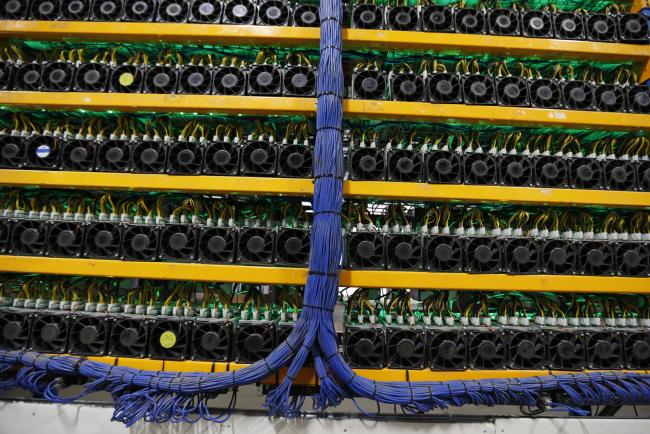(Bloomberg) -- Iran’s central bank prohibited domestic financial institutions from handling virtual currencies, citing money-laundering concerns, as it seeks to ramp up control over the nation’s currency markets.
“All branches of banks, credit institutions and currency exchanges should stay clear of any sale or purchase of these currencies and avoid undertakings that facilitate or promote such currencies,” the official Islamic Republic News Agency reported, citing the Central Bank statement. “Action will be taken against those who contravene the regulations.”
While many of the world’s monetary authorities have warned of the risks in digital coins, the step of banning them is uncommon. In Iran, the central bank had in recent months asked Iranians to avoid turning to cryptocurrencies including Bitcoin, describing them as “unreliable.” But this week’s announcement is a more drastic move and coincides with authorities working to control both the official and unauthorized currency markets.
Iran unified its official and unregulated rates earlier this month to avert a free fall of its national currency, which breached 60,000 to the U.S. dollar. The rial’s weakening came amid Iranians’ fear that the U.S. may exit from a multiparty nuclear deal next month, leading to the return of economic sanctions lifted as part of the 2015 agreement.
Iran was cut off from the global banking system for several years after it was banned from using the money-transfer messaging system SWIFT as part of sanctions over its controversial nuclear program.
Despite the lifting of some sanctions including the ban on SWIFT when the nuclear deal was implemented in 2016, most international banks are shying away from dealing with Iran from fear of running into remaining U.S. restrictions and being penalized.
